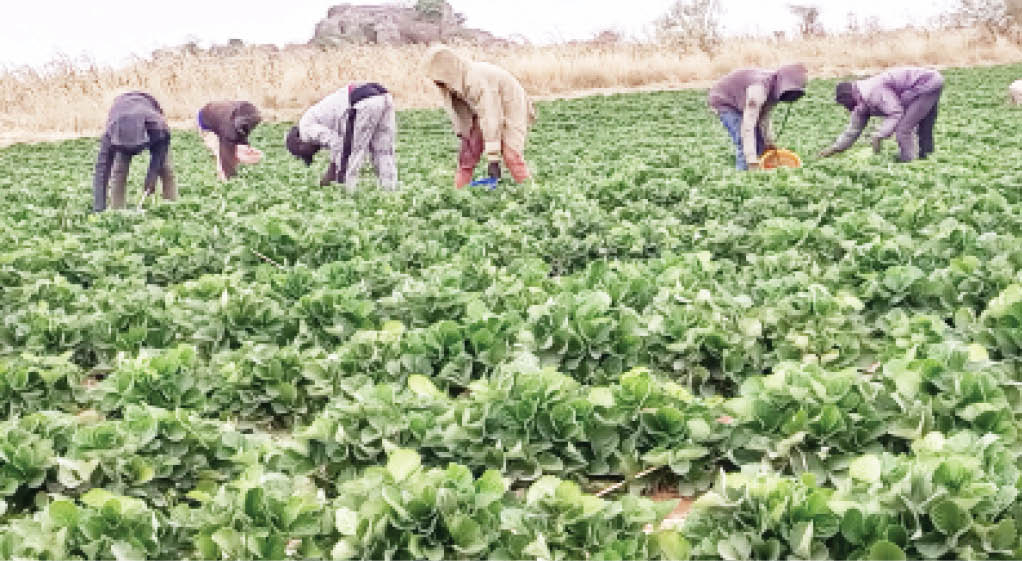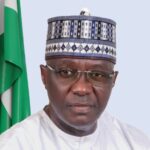By Vincent A. Yusuf, Baba Martins & Chris Agabi
For over 10 years, the Bank of Agriculture, which used to be farmers’ most effective bank for financing agricultural production and value chain activities, is going down due to many long-standing issues.
The bank has a tortuous history of change from one form to another. It was first incorporated as the Nigerian Agricultural Bank (NAB) in 1972 but commenced operation in 1973.
In 1978, the NAB was changed to Nigerian Agricultural and Co-operative Bank (NACB) Limited with a bigger responsibility, and by October 2001, the federal government merged the NACB, People’s Bank of Nigeria (PBN) and the assets of the Family Economic Advancement Programme (FEAP) to form the Nigerian Agricultural, Co-operative and Rural Development Bank (NACRDB) Limited. However, in October 2010, the bank’s name was again changed to the Bank of Agriculture (BOA) Limited.
The bank is owned by the Central Bank of Nigeria (40% equity) and the Federal Ministry of Finance (60%) under the supervision of the Federal Ministry of Agriculture and Rural Development.
Since becoming the Bank of Agriculture, government bureaucracy, political interference, frequent change of chief executive officers, the absence of a governing board, non-appointment of executive directors and bad loans, left the bank down for the count.
The bank, which is Nigeria’s highest agricultural and rural development financial institution, has the major responsibility of providing agricultural credit facility to support agricultural value chain activities across the country.
In 2017, Chief Audu Ogbeh, the then minister of agriculture and rural development and his counterpart in finance, Kemi Adeosun, governor of the Central Bank of Nigeria (CBN), Godwin Emefiele, along with the director-general of the Bureau of Public Enterprises (BPE), Mr Alex Okoh, conceived the idea of recapitalising the BoA to make it more efficient to drive the Green Alternative.
They considered a N200billion recapitalisation structure that would make the bank more vibrant, effective and competitive against any commercial bank in the country.
Under the proposed structure, individual farmers and cooperatives would own 40 per cent of the shares of the bank while other government ministries such as finance, agriculture and the CBN would own between 10 per cent and 20 per cent shares.
That, however, did not materialise and the effort to strengthen the bank continues without an end in sight, prompting the immediate past minister of agriculture and rural development, Alhahji Sabo Nanono, to say “the plan was never beyond newspaper publications,” “I think there was no serious attempt; and that is not the best approach.
“The best approach is to look at it properly and reorganise the bank and reposition it. If you are to sell the Bank of Agriculture now, you have to look at some portfolios, including its life and dead assets and see the balance between the two.”
In May 2019, a former managing director of the bank, Mr Kabiru Mohammed, revealed the disturbing situation at the bank when he said that farmers across the country owed over N60 billion.
“We have over N60 billion outside there, which people have refused to repay. In the last quarter we recovered over N300million through the collaborative effort between the bank and the Economic and Financial Crimes Commission (EFCC). And we will continue to do that,” he stressed.
The Office of the Auditor-General for the Federation had raised the alarm over the possibility of the bank becoming distressed as a result of some of these issues.
In the audit queries contained in the 2019 report submitted to the Clerk of the National Assembly and signed by the Auditor-General of the Federation, Adolphus Aghughu, questions were raised on the high turnover of chief executives and the non-composition of the Governing Board to oversee the affairs of the bank.
It was noted that events within the bank were a major threat to its continuation, which could lead to loss of stakeholders’ funds and investments.
The report also looked at the rising non-performing loan, amounting to N75.595bn. It also included unrecoverable loans from the Federal Ministry of Water Resources, amounting to N2.411bn, non-rendition of 2019 audited financial statements to the Auditor-General for the Federation, overdue tenure of external auditors, non-composition of Governing Board and high turnover of managing directors by the bank.
It further stated that the statement of the comprehensive income of the bank showed a consistent loss of revenue between December 31, 2017 and 2019, amounting to about N49.582bn over a three-year period.
Meanwhile, in the response of the management of the bank attached to the report as presented to the National Assembly, it was stated that on the rising non-performing loan, a joint recovery outfit of zonal and branch offices to intensify loan recovery had been put in place. The use of courts to prosecute chronic defaulters was also on the cards.
It was also noted that the bank was setting up a recovery taskforce at the head office and zones to consolidate recovery. Recovery targets had been assigned to members of staff at all levels, and the targets would form the basis of staff performance evaluation while and the bank was prosecuting defaulting clients in various courts.
On the concerns due to the continuous loss, management said it was repositioning the bank for better performance, adding, “As part of efforts to reposition the bank for greater effectiveness and efficiency. The Federal Government of Nigeria has received an initial grant of USD1.2 million for institutional strengthening and capacity building from the African Development Bank. The bank, through the grant, has engaged the services of Developer Financial Consulting Ltd, Ontario, Canada, in association with FDHL-MT Group, Lagos, to provide institutional advisory services for BoA. The consultant has since commenced work at our head the office on February 8, 2018.
On the non-payment of outstanding equity by shareholders, it was noted that various stakeholders were being engaged to provide adequate funding to boost the bank’s capital base.
On the loan in the Federal Ministry of Water Resources Management, it was also noted that the bank appointed a solicitor, D.D. Azura and Co in 2019, who recovered N350million from the ministry through the assistance of the present minister.
But according to the management, the repayment stopped temporarily as a result of the adjustments made in the 2020 budget due to the outbreak of COVID-19.
“We hope that with the improvement of the economic situation in the country and the reduction in the incidents of COVID-19, the ministry would start remittance to the bank until full liquidation,” it was stated.
Stakeholders react
Speaking on the development, Shuaibu Idris Miqati, an economist and farmer, blamed politics for the problem in the bank, adding however, that the situation is still redeemable if the federal government is ready to do so.
He said, “Fundamentally, I can adduce three principal issues, namely, inadequate capital or near absence of support from government, lack of quality human capital to run the operation of the bank, and above all, poor assets’ quality; in other words, bad debts.”
He said that even banks not owned by the government and had bad debts were taken over by the Asset Management Corporation of Nigeria (AMCON), but the Bank of Agriculture, for reasons best known to those in government, had been left to rot, adding, “In a country that wants to feed itself but handling agricultural loans with levity, you can only imagine the consequences.”
On the part played by the CBN, he said successive governments did not allow it to exercise its powers; hence it keeps the bank at a distance.
“It rather set up a rival micro finance bank targeting agricultural lending. These organisations are neither working in tandem with the Bank of Agriculture or even appear to recognise that the bank even exists.
On the auditor-general’s report, he said the capital of the bank had since been eroded by bad debts and losses over the years. “I am not sure if the bank is not already dead as it has long been technically insolvent, and in fact, bankrupt. However, with right leadership, good strategy, and above all, government support, it is certainly not beyond redemption, he said.”
On his part, the president of the All Farmers Association of Nigeria, Kabiru Ibrahim, an architect, said CBN’s intervention was also extended to the bank in a haphazard manner and some of the beneficiaries are not real farmers; hence the bank is not able to get repayments.
Also, the backlog of unpaid loans date back to 1980s, and in most cases, it is exceedingly difficult to get the farmers to pay back.
He further said, “The high turnover of chief executive officers is probably occasioned by the same rapidity in the change of leadership at the Federal Ministry of Agriculture and Rural Development, where the bank is domiciled. The non-appointment of executive directors is probably due to the recapitalisation issue.”
On the frequent change of the leadership of the bank, he said, “It requires policy consistency and due process. Chief executive officers and executive directors should be allowed to serve out their tenures.”
CBN, Finance ministry mum
All efforts to get the CBN and the Federal Ministry of Finance, Budget and National Planning were unsuccessful.
Several messages to the Director, Corporate Communication, CBN, Mr. Osita Nwanisobi, didn’t respond to questions sent to his phone over the BOA issue.
He also did respond to several reminders as at press time.
The Minister of Finance, Budget and National Planning, Mrs. Zainab Ahmed also didn’t respond to enquiries sent to her mobile phone on the matter.
Several reminders also didn’t yield any response as at press time.

 Join Daily Trust WhatsApp Community For Quick Access To News and Happenings Around You.
Join Daily Trust WhatsApp Community For Quick Access To News and Happenings Around You.

